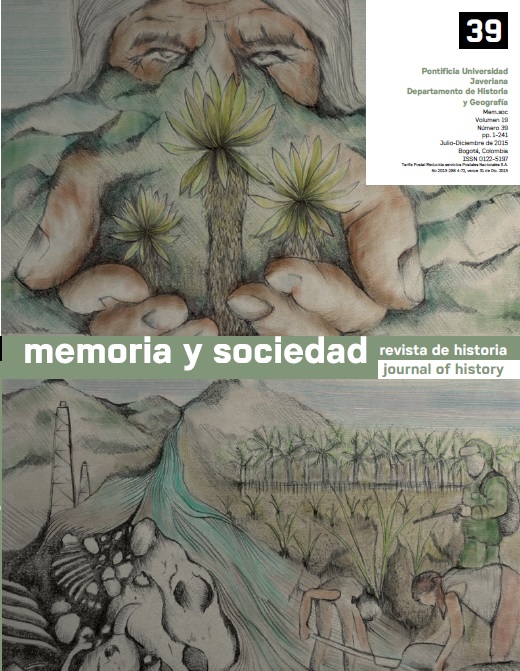Resumen
¿Cuáles son los entramados que articulan alparamilitarismo con la palmicultura de aceite?
Esta es la cuestión que orienta al texto, fruto
de una indagación documental frente a la
realidad de despojo encontrada en diversas zonas
rurales del país, y que dadas las condiciones
de impunidad, corrupción y continuidad de la
guerra, resulta en ocasiones difícil de comprobar.
Para ello se profundizó en dos zonas del
país: la Orinoquía, con énfasis en los departamentos
del Meta y Casanare y el Chocó. La investigación
permitió identificar etapas y ciclos
de intervención paramilitar con severos impactos
en la preservación de los derechos humanos,
al producir –entre otros- el despojo y destierro
de las comunidades. Además, estas circunstancias
se cruzan con dinámicas económicas legalizadas,
como lo son los proyectos de palma
aceitera y otras estrategias orientadas a dominar
y expoliar a los pobladores rurales, particularmente
campesinos y afrodescendientes.
La revista Memoria y Sociedad se encuentra registrada bajo la licencia Creative Commons Reconocimiento 4.0 Internacional. Por lo tanto, esta obra se puede reproducir, distribuir y comunicar públicamente en formato digital, siempre que se reconozca el nombre de los autores y a la Pontificia Universidad Javeriana. Se permite citar, adaptar, transformar, autoarchivar, republicar y crear a partir del material, para cualquier finalidad (incluso comercial), siempre que se reconozca adecuadamente la autoría, se proporcione un enlace a la obra original y se indique si se han realizado cambios. La Pontificia Universidad Javeriana no retiene los derechos sobre las obras publicadas y los contenidos son responsabilidad exclusiva de los autores, quienes conservan sus derechos morales, intelectuales, de privacidad y publicidad.
El aval sobre la intervención de la obra (revisión, corrección de estilo, traducción, diagramación) y su posterior divulgación se otorga mediante una licencia de uso y no a través de una cesión de derechos, lo que representa que la revista y la Pontificia Universidad Javeriana se eximen de cualquier responsabilidad que se pueda derivar de una mala práctica ética por parte de los autores. En consecuencia de la protección brindada por la licencia de uso, la revista no se encuentra en la obligación de publicar retractaciones o modificar la información ya publicada, a no ser que la errata surja del proceso de gestión editorial. La publicación de contenidos en esta revista no representa regalías para los contribuyentes.


